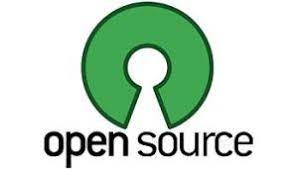2022: The Year You Become a Programmer

It’s Wednesday and work already has you down. Time for a career change?
You’ve probably got a million questions:
- What skills are most sought after by employers in 2022?
- What programming languages will dominate the job market?
- How can you start now to ensure that you can be successful in your career in 2022?
If you’re worried about the current state of technology and the future of our economy, then this is one article you should definitely read! By 2030, hundreds of millions of jobs will have been created, leading to new forms of both employment (and, unfortunately, unemployment) that we can barely imagine right now.
Here are a few highlights on how to future-proof yourself by becoming a professional programmer in 2022!
Step 1: Learn the basics
Take some free online courses, like those on Codecademy, and play around with some programming tools. While coding isn’t for everyone, if you can spend 15 minutes playing around with a language, you’ll know if it’s something that interests you. If not, no worries—there are lots of other skills to learn out there. If you like it, keep going. If not, move on to your next interest.
Step 2: Learn the advanced concepts
In 2022, you’ll probably want to aim to be an advanced programmer. That’s one that isn’t working with 1’s and 0’s directly. You’ll probably be using high-level languages. But don’t stop there. In order to stay competitive in your market, it’s important to keep learning and honing your skills. Just like chess players have to constantly analyze new strategies and reevaluate older ones, so too must programmers continue striving for perfection. Make it your goal to learn all of programming’s advanced concepts like algorithms, data structures, heuristics and complexity analysis as well as the latest snazzy frameworks like Node and React. The truly valuable programming professional is not just one that can do the job, but also knows what they are doing!
If you really want to go into more detail on any particular concept or method of design, consider taking some online courses in-depth on that subject—just be sure that they include exercises or projects where you can apply what you learned!
Step 3: Get into a programming role
Assuming you have time to spare (either while still in school or working a part-time job), start looking for companies that are hiring. Companies are always on the lookout for junior developers, but you’ll want to look for opportunities that will allow you to work with new and interesting technologies. A position with room for advancement is another plus. If at all possible, find an organization that’s passionate about what they do and willing to invest in new employees, who may be inexperienced but eager and hungry to learn new skills; that kind of environment is an ideal learning opportunity. Finally, make sure your employer offers health insurance and other benefits.
Step 4: Join an open-source project

Whether you’re an absolute beginner or an experienced developer, contributing to open source projects is one of the best ways to keep your skills sharp. Open source projects are all over GitHub and CodePen. You can join an existing project, or even create your own—either way, you’ll quickly learn best practices and new ways of thinking about programming that you can apply in your future projects. Many open source contributors say they value it as both a learning experience and a form of practice for more traditional jobs that require writing code.
Step 5: Work as a freelancer
Freelancing as a programmer is more common than you might think. There are many developers out there who contract through sites like Upwork and Fiverr. In fact, it’s common for developers to start their careers as freelancers before they find full-time employment. Working freelance isn’t right for everyone, but if you have expertise in development, design or programming, it could be an ideal way to launch your career. Use it as an opportunity to build up your portfolio of work to dazzle your future employer.
Step 6: Get a job
Search the boards, look up tech firms on Google Maps to drop you’re CV into, get your profile on LinkedIn up-to-date and, of course, there are the plethora of never-ending recruitment agencies that can try and hook you up with a job.
Any other tips? Want to share your journey to success? Let us know in the comments below!
